 |  |  |
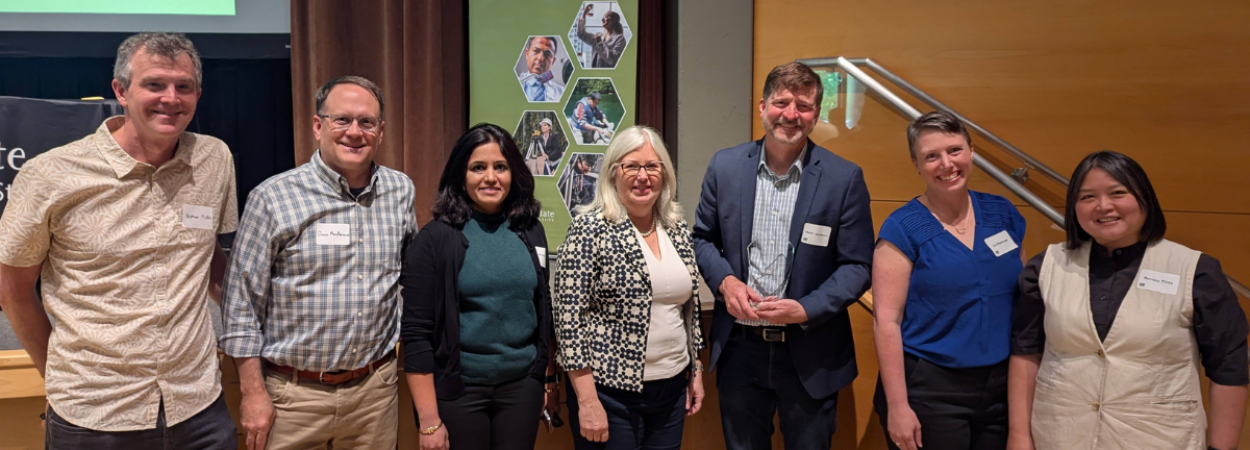
Last week, Portland State University (PSU) recognized the Portland Bureau of Transportation (PBOT) with its inaugural Public Impact Partner Award, celebrating the power of research to drive transformative change in the community.
The award was accepted by PBOT’s Deputy Director of Planning, Projects and Programs, Art Pearce, at an awards ceremony at PSU on Friday, May 9 in recognition of the agency's commitment to ensuring that Portland's transportation network is designed and maintained using evidence-driven practices. And the partnership continues: A new intergovernmental agreement (IGA) between PSU and PBOT was just signed in May 2025, which will support projects that foster innovation and meet Portland's goals of a livable, equitable and sustainable city.
By basing its plans, policies, and infrastructure designs on data and research findings, PBOT works to enhance safety and mobility for people walking, rolling, bicycling, riding transit, and driving in Por…
Read More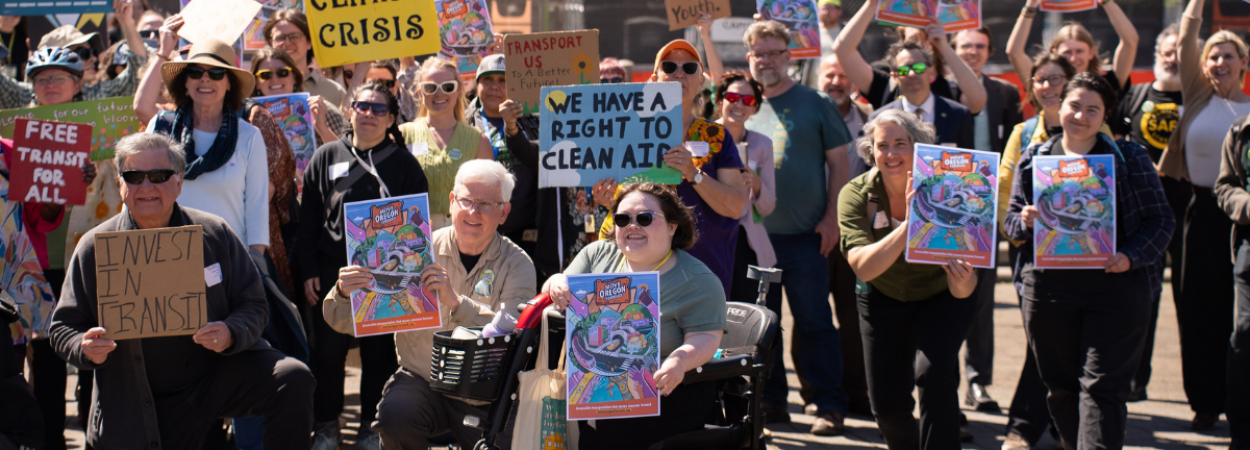
Cassie Wilson graduated from Portland State University (PSU) in 2024 with a Bachelor's degree in Liberal Studies. She is now the Transportation Policy Manager for 1000 Friends Of Oregon.
Connect with Cassie on LinkedIn
I’m the Transportation Policy Manager at 1000 Friends of Oregon. I’m helping lead the Move Oregon Forward coalition to advocate for a state transportation funding package that prioritizes safety, climate, and equity. I meet with legislators, lead on coalition strategy, write sign-on letters, one-pagers, and testimony guides, and build relationships with other transportation stakeholders.
Taking transportation classes at PSU helped me transition from volunteer transportation advocacy to a career in transpo…
Read More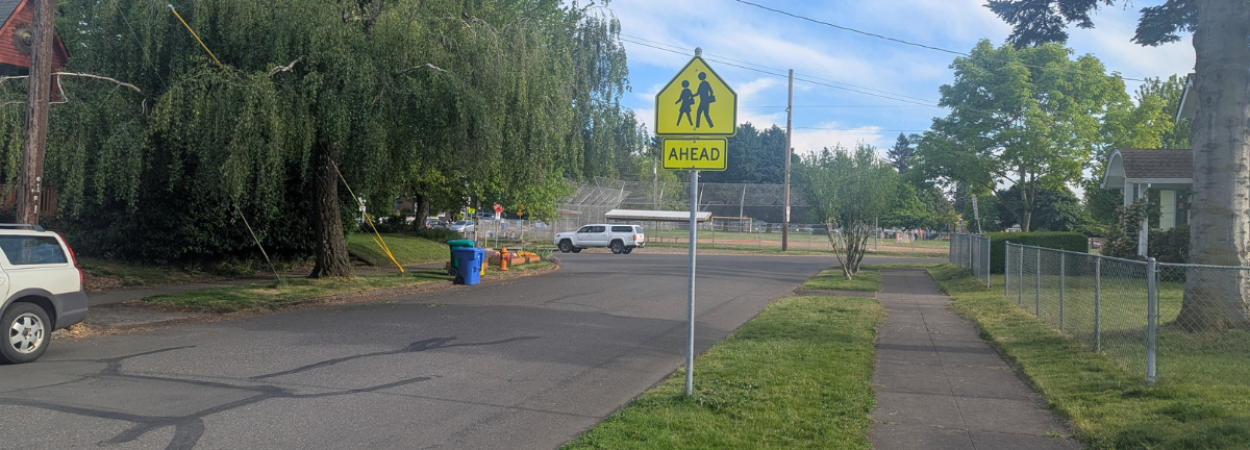
Four new projects took their first steps down the Better Block PSU Project Pathway, this Spring term at Portland State. Submitted by community members, the projects got underway with students beginning to investigate their potential in the Spring 2025 Pedestrian and Bicycle Planning course taught by Drusilla Van Hengel and Ryan Hashagen.
The Better Block PSU program has been getting a bit of attention in recent months, with coverage such as "Dreaming Big Might Mean Starting Small" from the Portland Mercury, a BikePortland article, plus Better Block PDX managing director Ryan Hashagen's presentation, "Let Knowledge Serve The City And Beyond," at The Street Trust's …
Read More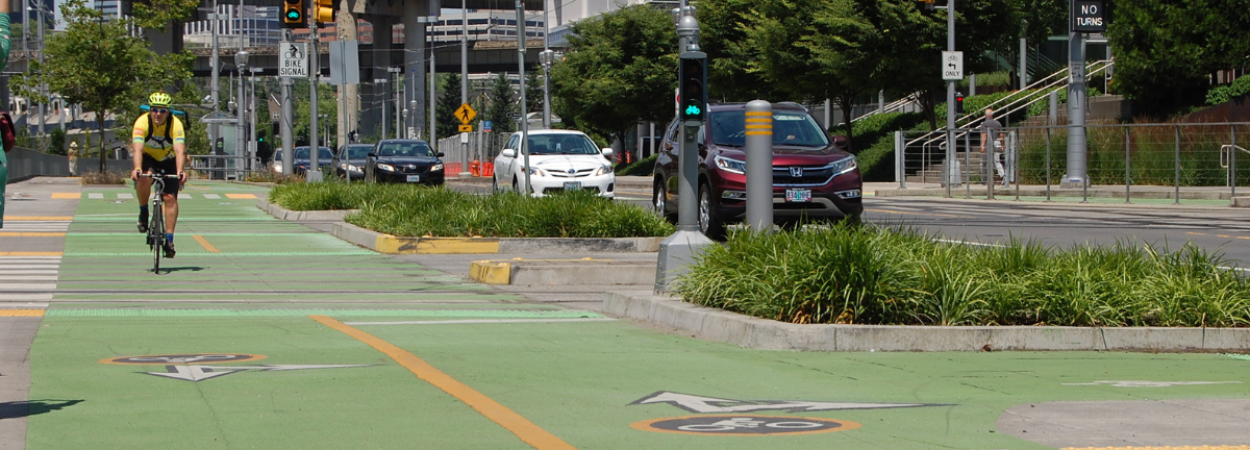
A new resource has been published to help transportation agencies identify key factors that influence the safety of people riding bicycles.
Many cities around the country share the related goals of increasing bike use, improving safety, expanding access and connectivity, and promoting equity. More and more, agencies and communities understand that meeting these goals requires building bike networks that work for people of all ages and abilities, with routes that feel safe and comfortable for everyone.
"On-Street Bicycle Facility Design Features" is a data-driven guidebook created to assist practitioners in selecting appropriate design elements for bicycle infrastructure, depending on the surrounding context.
The report is especially valuable for state and local agencies wishing to enhance safety and expand bicycle ridership, as it provides a framework for choosing the safest, most effective bicycle facility designs for…
Read More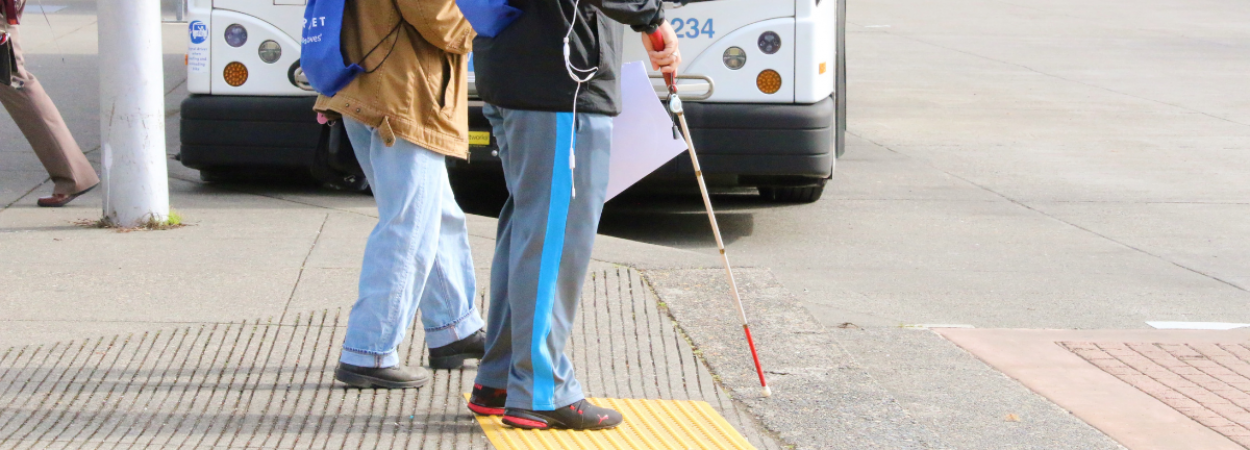
For people who are blind or have low vision, navigating public transportation can be a daunting challenge. Portland State University (PSU) is partnering with TriMet—the transit agency serving the Portland, Oregon metropolitan area—to make it easier.
"Human Wayfinding" is a new collaborative research project funded by TriMet, aimed at helping the agency improve the travel experience for transit riders with low vision.
Amy Parker, coordinator of the Orientation and Mobility (O&M) Program in PSU's Special Education Department, is leading the research. Students studying to be O&M professionals will work with TriMet to provide specialized support to low-vision travelers, using best practices developed by the blind and Deafblind community.
"If more people who are blind can get to where they are going, then that mean…
Read More